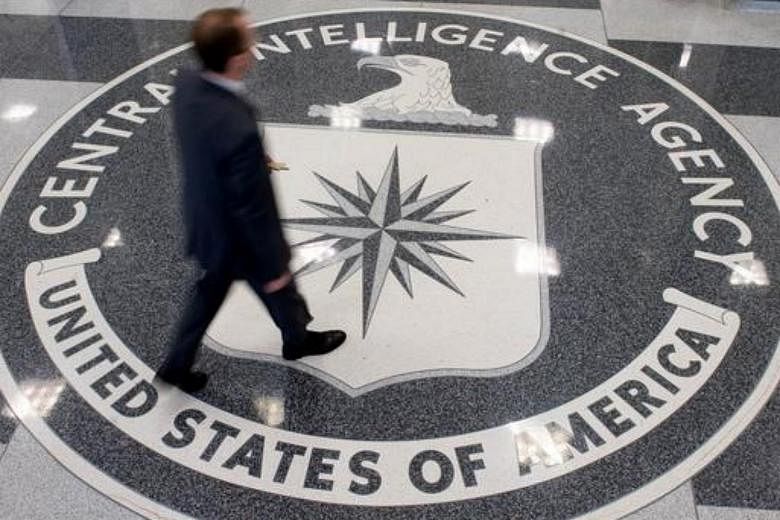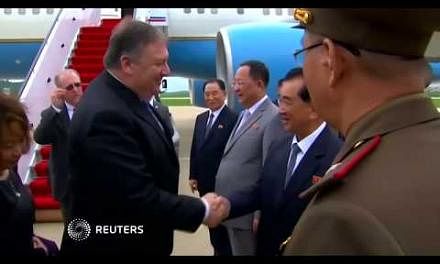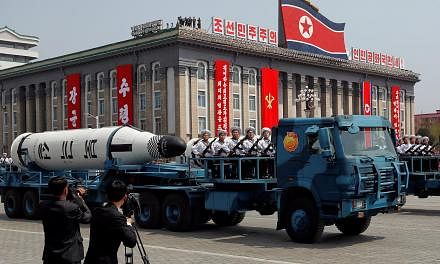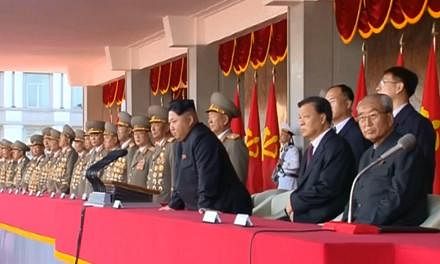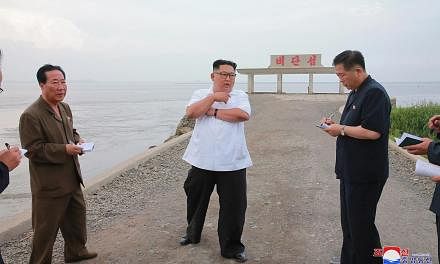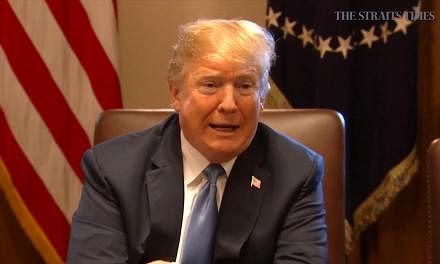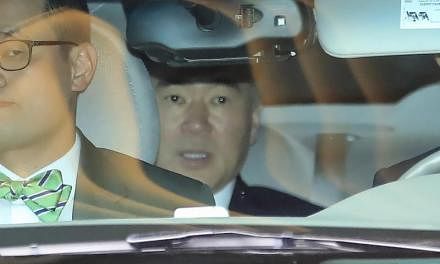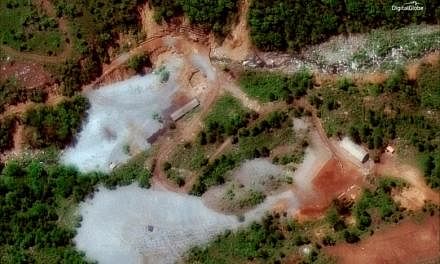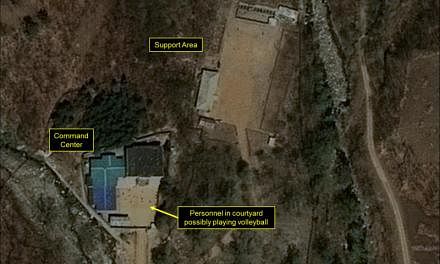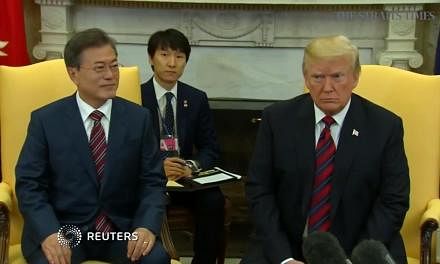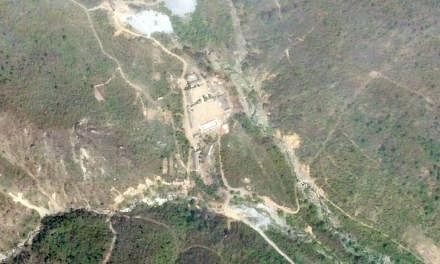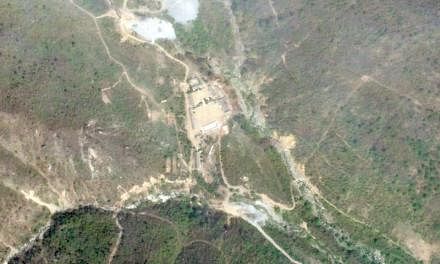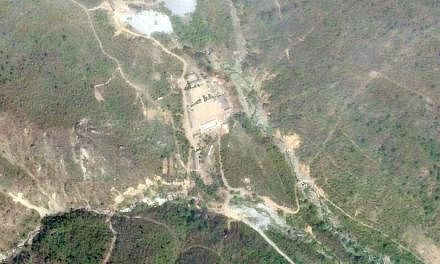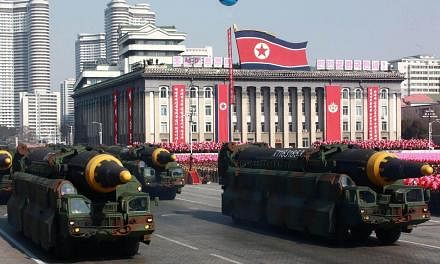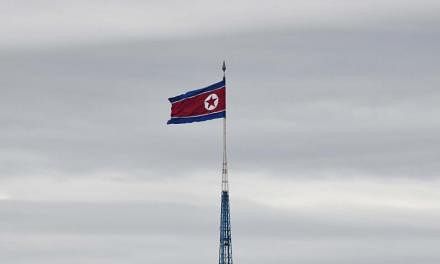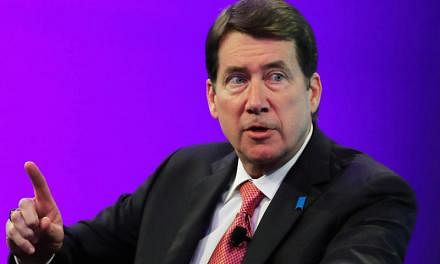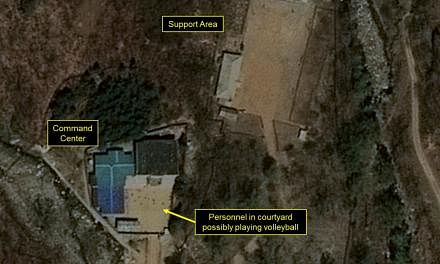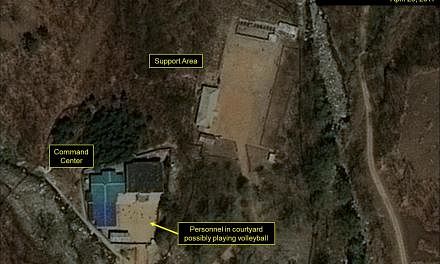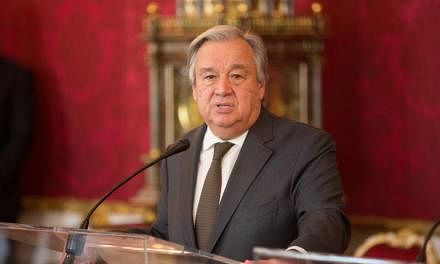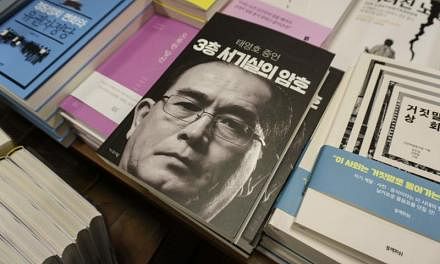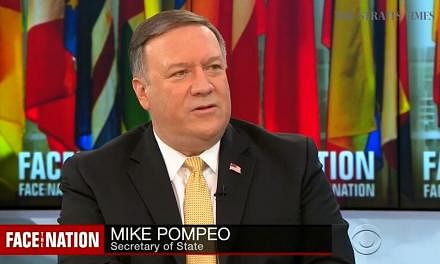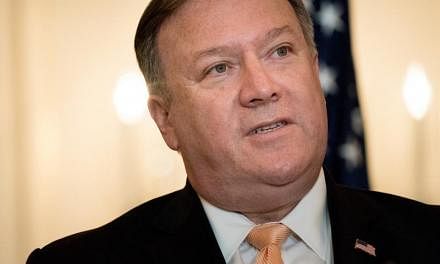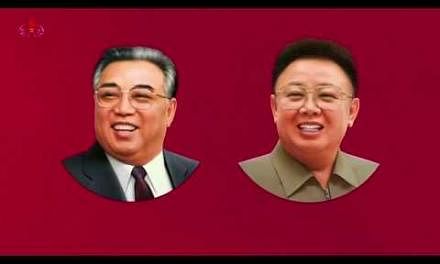WASHINGTON (NYTIMES) - The Central Intelligence Agency (CIA) has emerged as the primary player in US President Donald Trump's audacious diplomatic opening to North Korea, several officials said on Friday (March 16), conducting back-channel communications and taking a major role in planning Mr Trump's coming meeting with North Korean leader Kim Jong Un.
The White House's decision to use intelligence, rather than diplomatic, channels in communicating with the North Koreans speaks to the influence of Mr Mike Pompeo, the CIA director whom Mr Trump chose this week to replace Secretary of State Rex Tillerson.
It also reflects the State Department's diminished role in preparing for the riskiest encounter between an American president and a foreign leader in many years.
Mr Pompeo, these officials said, has already been dealing with North Korean representatives through a channel that runs between the CIA and its North Korean counterpart, the Reconnaissance General Bureau. And he has been in close touch with the director of South Korea's National Intelligence Service, Suh Hoon, whom US officials said brokered Mr Kim's invitation to Trump.
The deep involvement of Mr Pompeo, officials said, helps explain the timing of Mr Tillerson's ouster. Mr Trump, having decided to accept Mr Kim's invitation to a meeting, wanted to have a secretary of state who was in lock step with his views, these people said.
Mr Tillerson was an early advocate of diplomatic engagement with North Korea, pursuing it as part of his efforts to win the release of Americans detained there. But he often leaned too far ahead of Mr Trump in his eagerness, most notably when the president publicly undercut him during one of Mr Tillerson's trips to Beijing, tweeting that he was "wasting his time trying to negotiate with Little Rocket Man".
Mr Pompeo, a hawkish former Army officer and Republican congressman who has spoken about the possibility of regime change in North Korea, is viewed as more skeptical about engaging with Mr Kim.
It is not clear whether he advised the president in advance of his decision to accept the invitation to talk. But he is an astute reader of Mr Trump's preferences, and even before his nomination as secretary of state had become a vocal defender of the meeting.
"President Trump isn't doing this for theatre," he said last week on Fox News. "He's going to solve a problem."
North Korea has still not publicly confirmed the meeting, a silence that has raised suspicions among some Korea experts about whether Mr Kim really made the offer - or if he did, whether he agreed to halt nuclear and missile tests, and put his nuclear arsenal on the table, as part of a negotiation with the United States.
On Friday, however, the White House appeared committed. Mr Trump spoke with President Moon Jae In of South Korea, who has pushed tirelessly for talks between North Korea and the United States, and reaffirmed his intention to meet Kim by the end of May.
The administration struck a cautious note, saying in a statement: "Both leaders affirmed the importance of learning from the mistakes of the past, and pledged continued, close coordination to maintain maximum pressure on the North Korean regime."
But it added: "The two leaders expressed cautious optimism over recent developments and emphasised that a brighter future is available for North Korea, if it chooses the correct path."
Administration officials declined on Friday to say whether Washington had established direct communication with Pyongyang. Asked the same question earlier in the week, they said there had not yet been contact.
A spokesman for the CIA declined to comment on the agency's role, referring questions to the White House.
While a meeting of Trump and Kim would be one of the boldest diplomatic gambles of recent years, it was orchestrated largely by the intelligence services of the three countries.
Officials said Mr Suh, the South Korean spy chief, laid the groundwork for Mr Kim's invitation in negotiations and a subsequent meeting in Pyongyang with Mr Kim Yong Chol, a powerful general who heads inter-Korean relations and used to run North Korea's intelligence service.
Mr Kim Yong Chol led the North's delegation to the closing ceremony of the Winter Olympic Games in Pyeongchang, South Korea, where he sat steps from Mr Trump's daughter Ivanka. The two did not speak.
Mr Suh was one of two South Korean envoys who visited the White House last week to brief Mr Trump on their meeting with Kim Jong Un in Pyongyang a few days earlier. But he was overshadowed by his colleague - Chung Eui Yong, the national security adviser - after the president instructed Mr Chung to announce the meeting to reporters gathered in the White House driveway.
Now that Mr Pompeo has been promoted, officials said, the use of the intelligence channel is mostly a convenience. But he still needs to be confirmed by the Senate, a process that could take several weeks. By continuing to work through the CIA channel, he can be involved in the planning while he awaits his move to the State Department.
Some officials expressed concern about the CIA's taking the lead in orchestrating a leader-to-leader meeting - work that would normally be the province of the State Department.
The intelligence officials on the North Korean side, they said, are unsavory figures, not least mr Kim Yong Chol himself, who is accused of masterminding the torpedo attack that sank a South Korean navy ship in 2010, killing 46 sailors, and a deadly artillery attack on a South Korean island.
Still, some diplomats said they were not concerned about the CIA's role, as long as the meeting did not get derailed. They pointed out that the State Department just lost its chief North Korea negotiator, Joseph Yun, who retired from the Foreign Service, in part because of his frustration with his agency's diminished role.
The National Security Council has assembled a working group, composed of officials from several agencies, to strategize before the meeting. The group met for the first time this week, and one official said the White House was determined to include people who brought a range of views on North Korea.
It is not the first time, officials noted, that intelligence agents have been involved in sensitive diplomacy with North Korea.
In 2014, the director of national intelligence, James R. Clapper, traveled secretly to North Korea to negotiate the release of two Americans, Kenneth Bae and Matthew Miller. He got the Americans out, but said afterward that the North Koreans were crestfallen that he did not bring with him an American proposal for a broader diplomatic breakthrough.
